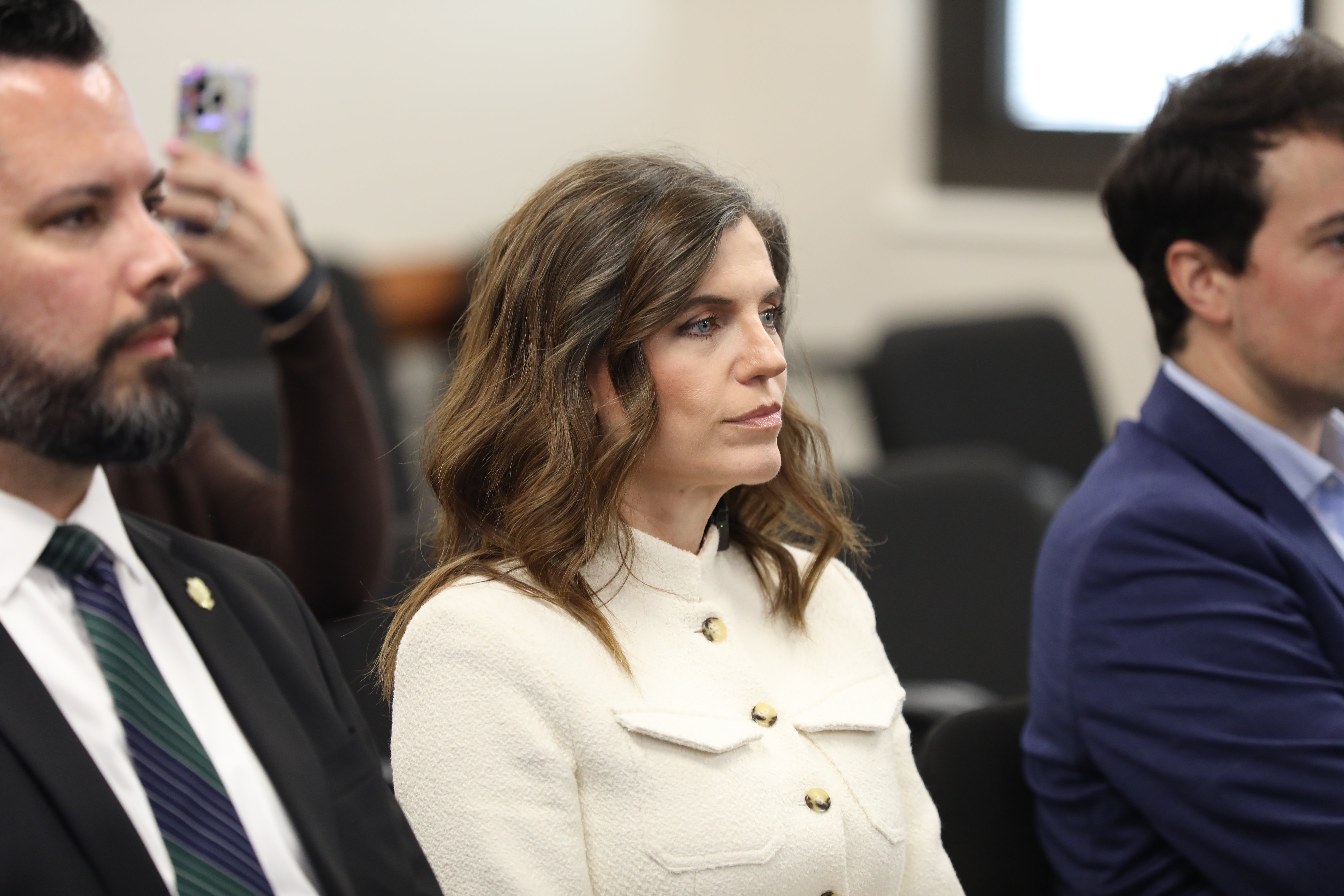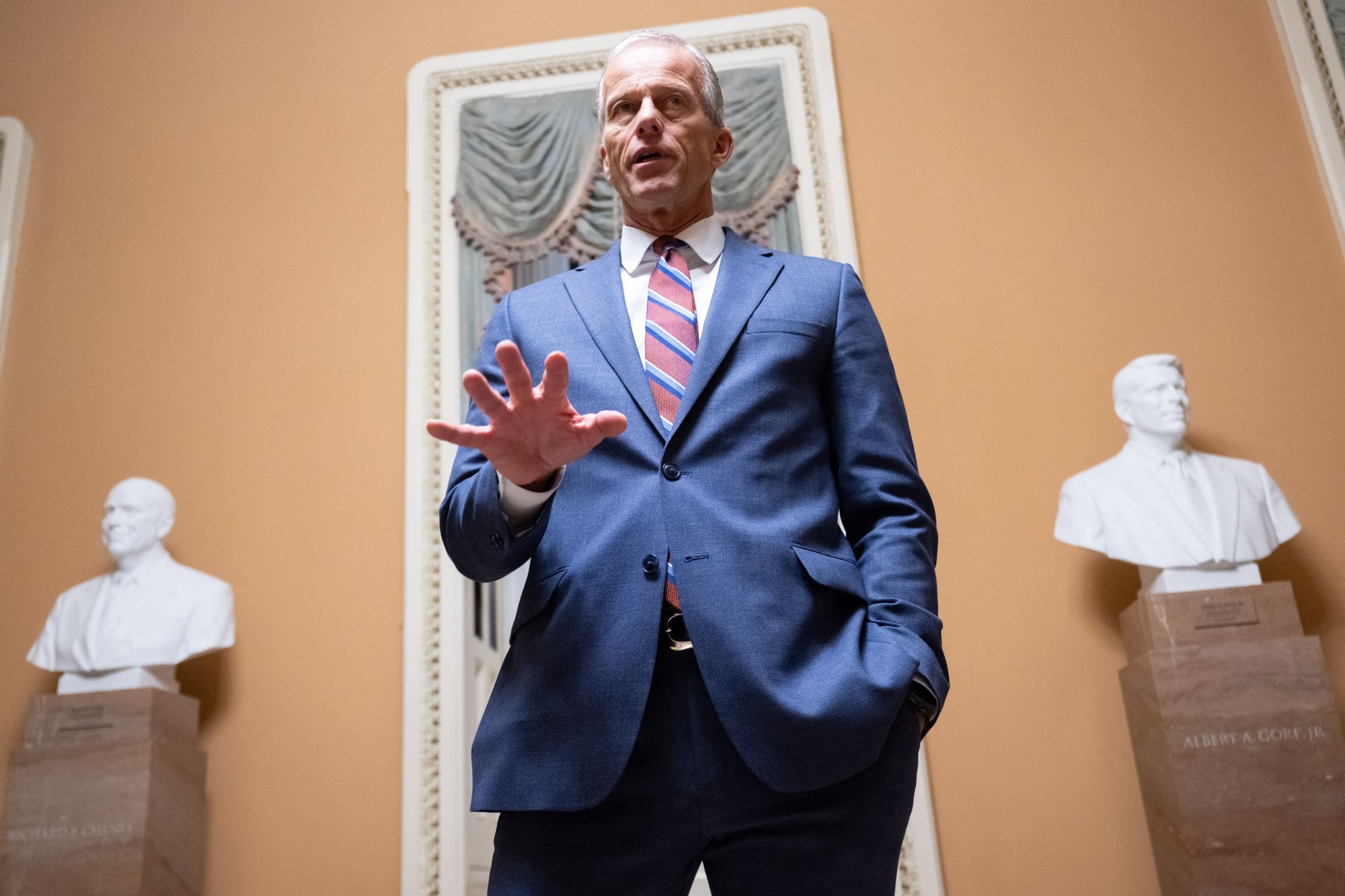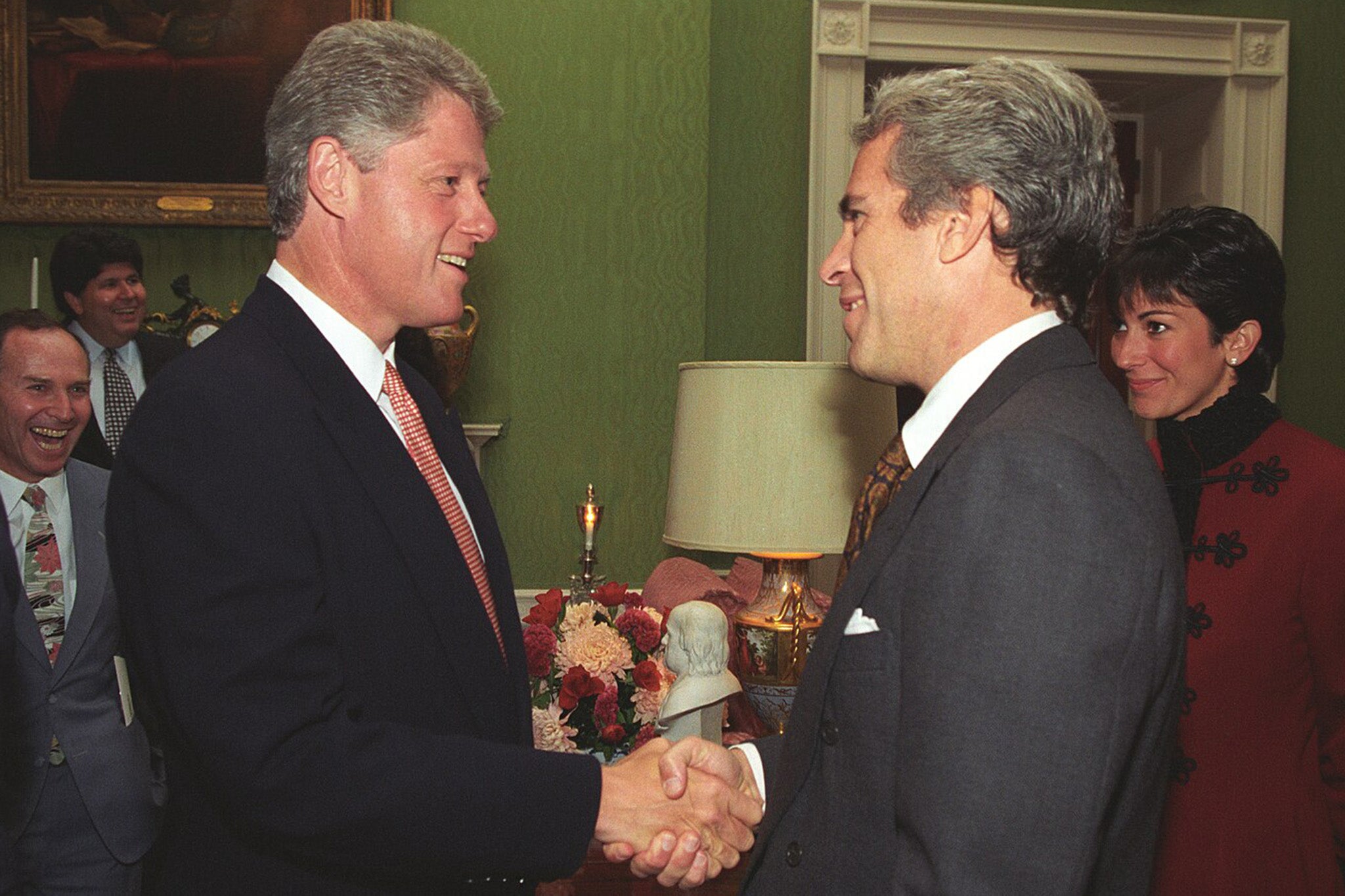The U.S. House of Representatives is about to embark on something it rarely does: A five-day work week like the rest of America. Oh, also, the House will finally hold a vote on legislation to release files related to convicted sex offender financier Jeffrey Epstein.
Over the weekend, President Donald Trump gave his blessing for House Republicans to vote to release the files, granting Speaker Mike Johnson leave to stop stonewalling on behalf of the president.
Of course, Trump had days earlier called for the Department of Justice to investigate Epstein’s ties to Democratic politicians and officials like former president Bill Clinton and Treasury secretary Larry Summers as well as Democratic donors like Reid Hoffman — and AG Pam Bondi quickly complied — meaning there is still a good chance that no files will be made public even if Congress asks for them becuase they are now part of an active investigation once again
Trump’s latest turnaround also came after the Democrats on the House Oversight Committee last week released emails from the deceased Epstein — who hung himself while in federal custody in Manhattan awaiting trial in 2019 — saying Trump “knew about the girls” and that he asked his accomplice Ghislaine Maxwell “to stop.”
After Rep. Adelita Grijalva (D-Ariz.) became the needed 218th signature on the bipartisan discharge petition by Reps. Thomas Massie (R-Ky.) and Ro Khanna (D-Calif.) to force a vote to release the files.
Up until Trump’s remarks late Sunday, the effort had split the Republican conference. Before that, over the weekend, Trump finally went nuclear on Rep. Marjorie Taylor Greene (R-Ga.) for signing the petition and also coming out publicly on his most hated news network, CNN, to call him out over it. Rep. Nancy Mace (R-S.C.), on the other hand, tried to straddle the line between signing the petition and supporting Epstein survivors, given Mace is a rape survivor herself but also needs Trump’s endorsement to win the governorship in her state.
But this is just the beginning of a long process that will require safely declassifying the files in a way that will not reveal the identities of victims — not as tough a process and the administration has proclaimed — and a likely back-and-forth between Congress and the Department of Justice over the freshly reopened case.
And there is no guarantee the Senate will even vote on the legislation.
Here’s five things to watch during the vote:
1. When does the vote take place?
Under the rules of the House of Representatives, the speaker has the discretion to set the date and time of the vote on a measure like the discharge petition for the Epstein files.
Speaker Johnson has thus far vehemently opposed that vote and he actually sent the House home for August recess a day early because Democrats ground the Rules Committee to a halt. Johnson’s broad authority will mean he can decide when to have the vote.
When the House passed the One Big, Beautiful Bill, Johnson kept votes open for hours, called for the Rules Committee — which determines the rules for debate on the floor — to make last-minute tweaks in the wee hours of the morning and lobbied Trump to flip votes. Johnson can choose to hold the vote as early as possible to get it over with and let the news cycle pass, or he could drag it out into the dead of night in hopes other stories eclipse it.

2. How many Republicans – and which ones – will defect?
With Trump now supporting a vote, Republicans are free to vote their conscience. Ever since the FBI and the DOJ released its two-page memo in July saying that Epstein did not have a client list and that he likely killed himself, conspiracy theorists have been clammoring the release of all the government has on Epstein. Plenty of hard-right conservatives like Rep. Anna Paulina Luna (R-Fla.) have peddled in Epstein theories for some time, so their votes will be ones to watch. At the same time, Republicans in swing districts will face immense pressure to vote for it, lest they be seen as covering for a pedophile.

3. Will the Senate take up the vote - and if so, when?
Of course, the House vote is only half the battle.
For the most part, the Epstein files have been almost an exclusively an affair in the House. The Senate sees itself as a more deliberative body. When The Independent asked Sen. John Cornyn of Texas about it in July, he said, “We’ve got enough to do.”
In September, when Schumer tried to force a vote on disclosing the files, only two Republicans joined Democrats: Sens. Rand Paul of Kentucky and Josh Hawley of Missouri.
Trump supporting a vote might compel Senate Majority Leader John Thune to hold a quick vote to get it out of the way. But he could easily just ignore the legislation. Republicans in battleground districts have an incentive to vote for it, as does Sen. Susan Collins in Maine, who is facing her most serious Democratic challenge in a long while. Retiring Republican senators like Sen. Thom Tillis (R-N.C.) and Sen. Joni Ernst (R-Iowa) also will not fear a vote for the files.
4. How does the Department of Justice respond?
One defining trait of the current Trump administration is a desire to make Congress subservient to the presidency. The Republican majority in either chamber has so far not sought to hold the Trump administration accountable.
Indeed, when Attorney General Pam Bondi and FBI Director Kash Patel have appeared before Congress, they have appeared to perform more for Trump rather than give a full accounting of their activity. They could likely redact major parts of files or flag others as not suitable for release.
They couldalso provide Trump cover by refusing to relase the files under pretense of the new probe — allowing him to say he called for the release (despite spending months fighting it) with no fear that the files will be released until at least very late in his second and final term in office. And do not expect a Republican Senate or House to file lawsuits against the Trump-Bondi DOJ to compel them hand over the documents.

5. How will these be politicized?
The trove of emails last week revealed one truth: Epstein’s tentacles reached beyond political lines.
For years, many right-wingers hoped the emails would reveal a cabal of Democratic elites running a pedophile ring. And yes, Democratic figures like Clinton ran in circles with Epstein and even flew on his plane. But so did Ken Starr, the Republican former independent counsel who led the probe into Clinton that gave way to Clinton’s impeachment for lying under oath about his relationship with Monica Lewinsky.
And yes, Clinton Treasury Secretary Larry Summers had a relationship with Epstein that was far too chummy. But Trump strategist and ally Steve Bannon also emailed Epstein a year before the disgraced financier’s death.
All of this to say, there will be plenty of ammo for Republicans and Democrats to use to accuse their opponents of enabling Epstein’s horrific behavior.
Trump says he’d sign a bill to release Epstein files if it’s passed by Congress: Live
Pope Leo XIV calls for urgent climate action and says God’s creation is 'crying out'
UN Security Council approves Trump’s plan authorising a stabilisation force in Gaza
White House aides killed one of Trump’s home improvement plans for the Oval Office
Trump says he will sign bill to release Epstein files if Congress passes it
Paris Hilton addresses claims that Ghislaine Maxwell tried to recruit her for Epstein







